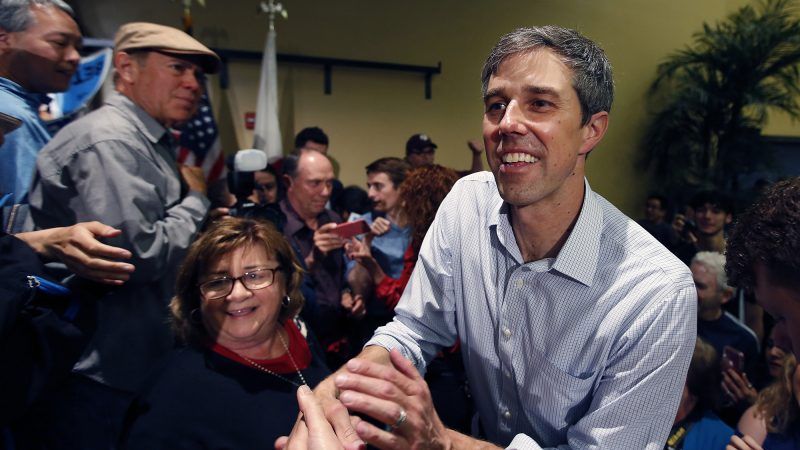Beto O'Rourke Wants To Overhaul Our Asylum System and Provide Amnesty for 11 Million Immigrants
The presidential hopeful released his immigration plan on Wednesday.

Democratic presidential hopeful Beto O'Rourke unveiled a sweeping immigration plan on Wednesday, promising to reform the U.S. asylum system, overhaul naturalization laws, and strengthen relations with Latin America.
"Coming from a city of immigrants, I've seen the incredible contributions of immigrants to our communities and local economies, and have been able to experience what happens when we allow everyone to contribute to their full potential," O'Rourke said in a statement announcing the plan. "Under our administration, we will ensure that we advance a new vision of immigration that fully reflects our country's values and empowers every individual to contribute to the shared greatness of our country."
On day one, O'Rourke says he would usurp executive authority to reunite families separated at the border by Trump's "zero tolerance" policy. Specifically, O'Rourke would issue an executive order to eliminate immigrant detention for all detainees, save those with criminal records. He would also terminate funding for private prison operators.
In lieu of detention, O'Rourke wants to bolster family case management, which he says is "nearly one-tenth the cost." Additionally, his plan pledges to streamline the asylum process by adding judges and repealing policies that slow down adjudication. According to Syracuse University, there were 859,375 pending immigration cases in April 2019, which includes asylum cases that failed an initial review. On average, it takes 718 days to get an immigration hearing.
The presidential hopeful outlines a series of loftier goals as well, such as cementing an "earned" path to citizenship for America's 11 million undocumented immigrants within his first 100 days, which would require congressional approval. While that may be a long shot, he says his amnesty plan would be "more efficient than previous proposals," though he does not elaborate.
Despite being short on some specifics, O'Rourke does outline an innovative community-based visa designation that would allow local governments and religious congregations to sponsor refugees. Further, he suggests expanding visa caps, allowing immigrant-heavy industries like agriculture, manufacturing, and various service trades to hire immigrant labor.
O'Rourke believes we need to build up Latin America in order to fix our own immigration system. As such, he proposes a $5 billion investment in the region, with the primary beneficiaries listed as non-governmental organizations (NGOs), community-based groups, and public-private partnerships. However well-intentioned, outside efforts to rebuild foreign institutions from the ground up are rarely successful. In fact, they often make things worse.
While abolishing Immigration and Customs Enforcement ICE is an increasingly popular line among Democratic candidates, it doesn't resonate with O'Rourke, who would instead create a commission to oversee the agency and inaugurate "improved training and continuing education courses."
In Beto fashion, the former rocker infuses his plan with quotes from a range of immigrants, the majority of whom live in his hometown of El Paso, Texas. "It took me almost 18 years to finally be able to become a United States citizen," says Carlo G. Maldonado, an immigration lawyer from Quito, Ecuador, who came to the U.S. when he was 16 years old. "I am so honored today to be able to say that I am an American, and I'm honored that through my work every day I am able to help others navigate the immigration process and have a chance at the American Dream too."


Show Comments (43)